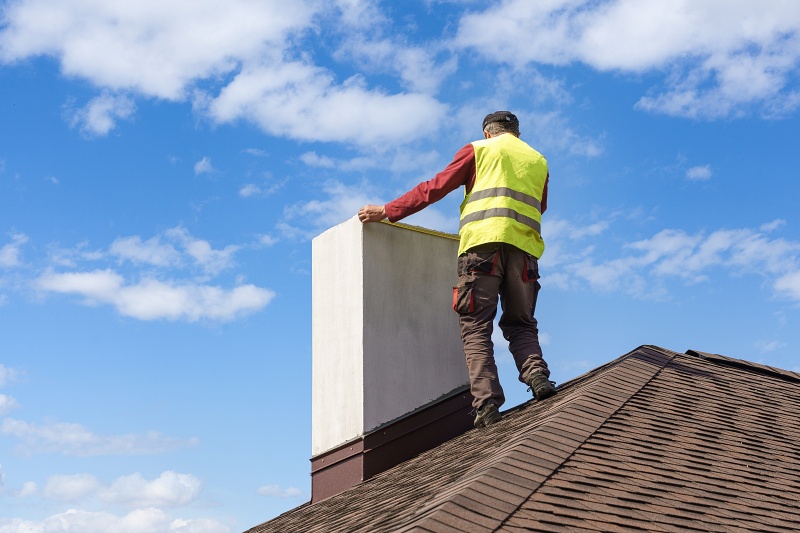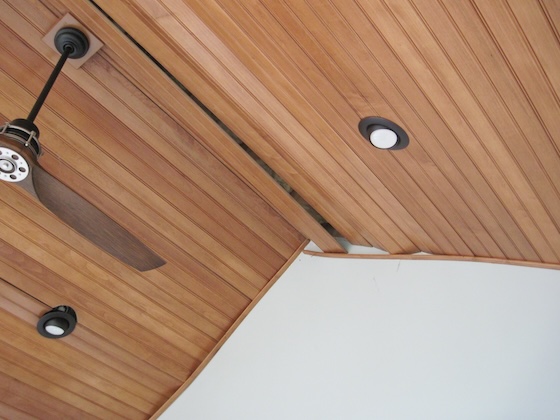
Protecting the structural integrity of your chimney
One of the most important aspects of maintaining a safe and functional chimney is protecting its structural integrity. Over time, wear and tear can cause cracks or damage to the bricks and mortar that make up your chimney. This can lead to serious problems, such as collapsing chimneys or fires caused by hot gases escaping through gaps in the structure.
To prevent these issues from occurring, it’s essential to have your chimney inspected regularly. A professional chimney inspector will be able to identify any potential problems early on, allowing you to take action before they become more serious. Additionally, regular maintenance such as cleaning and sealing can help keep your chimney in good condition for years to come.
Another key aspect of protecting your chimney’s structural integrity is ensuring that it is properly supported. If your home was built without a proper foundation or support system for the chimney, it may be at risk of collapse over time. To avoid this problem, consider having a contractor install additional supports or reinforcing materials around the base of your chimney if necessary. By taking these steps, you can ensure that your fireplace remains safe and functional for many years to come without putting yourself or others at risk.
Detecting and preventing water damage
Water damage can be a serious issue for chimneys, as it can lead to structural problems and even collapse. To detect water damage in your chimney, look out for signs such as rusted damper or firebox components, cracked or deteriorated mortar joints, and spalling bricks or stones. If you notice any of these signs, it’s important to address the issue promptly before it worsens.
Preventing water damage is crucial in maintaining the integrity of your chimney. One effective way to prevent water from entering your chimney is by installing a chimney cap. This device sits on top of your chimney and prevents rainwater and debris from entering while still allowing smoke and gases to escape. Additionally, waterproofing agents can be applied to the exterior masonry surface of your chimney to repel moisture.
Regular inspections by a professional are also essential in detecting and preventing water damage in chimneys. A certified technician will thoroughly inspect all components of your chimney system, identify any potential issues that may cause water damage, and recommend appropriate solutions. By taking preventative measures against water damage early on, you can save yourself time, money, and stress down the line while ensuring the safety of your home and family.
Improving indoor air quality through proper venting
Proper venting is essential to improving indoor air quality in your home. Without proper ventilation, harmful pollutants can accumulate and circulate throughout the house, leading to respiratory problems and other health issues. One of the most effective ways to ensure adequate ventilation is by installing exhaust fans in high-moisture areas such as bathrooms and kitchens. These fans help remove excess moisture from the air, reducing the risk of mold growth and improving overall air quality.
Another important aspect of proper venting is ensuring that your HVAC system is functioning correctly. A poorly maintained HVAC system can lead to a buildup of dust, dirt, and other allergens in your home’s ductwork. Regular maintenance checks can help identify any potential issues with your HVAC system before they become major problems.
In addition to maintaining a properly functioning HVAC system, it’s important to regularly change out air filters throughout the house. This helps trap airborne contaminants such as pollen and pet dander before they have a chance to circulate through the home’s ventilation system. By taking these steps towards better indoor air quality through proper venting practices, you’ll be creating a healthier environment for yourself and your family while also extending the lifespan of your heating and cooling systems.
Reducing the risk of carbon monoxide poisoning
Carbon monoxide (CO) is a colorless and odorless gas that can be deadly if inhaled. It is produced when fuels like wood, oil, natural gas, and propane are burned. To reduce the risk of CO poisoning in your home, it is important to have your heating system inspected annually by a licensed professional. They will check for any leaks or damage to the system that could cause CO to leak into your home.
Another way to prevent CO poisoning is by installing carbon monoxide detectors throughout your home. These devices work similarly to smoke detectors but are specifically designed to detect high levels of CO in the air. Be sure to follow the manufacturer’s instructions on where and how many detectors should be installed in your home.
If you suspect there may be a problem with your heating system or have experienced symptoms of CO poisoning such as headaches, dizziness, nausea or confusion, evacuate immediately and call 911 from outside of the house. Do not re-enter until emergency responders have given you clearance that it’s safe.
By taking these precautions and being aware of potential risks associated with heating systems fueled by wood, oil, natural gas or propane – homeowners can help protect themselves against carbon monoxide poisoning while enjoying their warm homes during colder months without fear!
Identifying and repairing animal damage
Animals can cause significant damage to your chimney, especially if they are allowed to enter and nest inside. Some of the most common culprits include birds, squirrels, raccoons, and even bats. Signs of animal damage may include debris or nesting materials in the flue liner or chimney cap, as well as unpleasant odors emanating from the fireplace. If you suspect that animals have caused damage to your chimney, it is important to take action quickly before the problem worsens.
The first step in repairing animal damage is identifying which type of animal has caused it. This will help determine what kind of repairs are needed and how best to prevent future infestations. For example, if birds have built nests inside your chimney cap, installing a bird guard can prevent them from returning in the future. Similarly, sealing off any entry points around your roofline can help keep squirrels and other critters out.
Once you have identified the source of the problem and taken steps to prevent further infestations, it’s time to repair any existing damage. Depending on the extent of the issue, this may involve cleaning out debris from inside your chimney or replacing damaged components such as flue liners or caps. In some cases where animals have caused extensive structural damage over time (such as by chewing through brickwork), more extensive repairs may be necessary.
By taking swift action when you notice signs of animal activity in your chimney and enlisting professional help for repairs when needed , you can protect both your home’s structure and its inhabitants from harm .
Ensuring proper function of flue liners
Flue liners are an important component of any chimney system. They help to protect the chimney walls from heat and corrosive byproducts, while also improving draft and preventing dangerous gases from entering your home. However, over time, flue liners can become damaged or deteriorated, compromising their function and putting your home at risk.
Regular inspections are key to ensuring proper function of flue liners. A professional chimney sweep can assess the condition of your liner and identify any areas that may need repair or replacement. Common signs of a damaged liner include cracks, gaps between tiles, discoloration or staining on the exterior of the chimney walls, or excessive creosote buildup in the flue.
If you suspect that there may be an issue with your flue liner, it’s important to address it as soon as possible. Ignoring problems can lead to more serious issues down the line such as carbon monoxide poisoning or even fires caused by sparks escaping through gaps in the liner. By taking action early on and working with a trusted professional, you can ensure that your chimney is functioning safely and efficiently for years to come.
Overall, maintaining proper function of flue liners is just one aspect of responsible chimney ownership. Regular inspections and maintenance not only keep your family safe but also extend the lifespan of your heating system while saving you money on costly repairs in the long run. Don’t neglect this crucial component – schedule an inspection today!
Extending the lifespan of your chimney
One of the best ways to extend the lifespan of your chimney is by scheduling regular inspections and cleanings. A professional chimney sweep can identify any potential issues before they become major problems, such as cracks in the masonry or damage to the flue liner. They can also remove creosote buildup, which not only reduces efficiency but also increases the risk of a chimney fire.
Another important factor in extending your chimney’s lifespan is proper usage. Burning only seasoned wood and avoiding overloading the fireplace are key components in reducing wear and tear on your chimney system. Additionally, using a spark arrestor on top of your chimney can prevent debris from entering and causing damage.
Investing in preventative measures such as waterproofing treatments for masonry chimneys or installing stainless steel liners can also help extend the life of your chimney. By taking these steps, you’ll not only save money on costly repairs down the line but ensure that your home remains safe for years to come.
Enhancing the efficiency of your heating system
One of the most significant benefits of maintaining your chimney is that it can enhance the efficiency of your heating system. A clean and well-maintained chimney allows for proper air flow, which translates into a more efficient heating system. When there are blockages or buildup in the chimney, it forces your heating system to work harder to produce heat and can result in higher energy bills.
Regular cleaning and maintenance of your chimney can also help prevent damage to other parts of your heating system. For example, if there is excess creosote buildup in the flue liner, it could potentially ignite and cause a house fire. By ensuring that your chimney is cleaned regularly, you reduce this risk significantly.
In addition to improving efficiency and preventing damage, maintaining your chimney can also improve indoor air quality by reducing harmful pollutants from entering your home through a poorly functioning or damaged chimney. This not only creates a healthier environment but also reduces potential health risks associated with poor indoor air quality such as allergies or respiratory issues.
Saving money on costly repairs down the line
Maintaining your chimney is crucial to saving money on costly repairs down the line. One of the most common issues that can lead to expensive repairs is water damage. Water can seep into cracks and crevices, causing deterioration of masonry and rusting of metal components. To prevent this, it’s important to regularly inspect your chimney for any signs of water damage and take immediate action if you notice any.
Another way to save money on repairs is by ensuring proper function of flue liners. Flue liners protect your home from heat transfer, carbon monoxide poisoning, and other hazards associated with burning fuel in a fireplace or stove. If they become damaged or deteriorated over time, they will need replacing which can be costly. Regular inspections and maintenance will help ensure that your flue liners are functioning properly.
Finally, extending the lifespan of your chimney through regular maintenance not only saves you money but also increases the overall safety of your home and family. A well-maintained chimney reduces the risk of fire hazards such as creosote buildup and carbon monoxide poisoning caused by blocked ventilation systems. By investing in routine inspections and cleaning services now, you’ll avoid more significant costs down the line while keeping yourself safe from potential dangers associated with a poorly maintained chimney system.
Increasing the overall safety of your home and family.
One of the biggest benefits of maintaining your chimney is that it can significantly increase the overall safety of your home and family. A well-maintained chimney reduces the risk of fire, carbon monoxide poisoning, and other hazards associated with a malfunctioning heating system. By investing in regular inspections and cleanings, you can ensure that your chimney is functioning properly and safely.
Another way to improve safety is by installing a carbon monoxide detector near your heating system. Carbon monoxide is an odorless gas that can be deadly if not detected early on. By having a detector installed, you’ll receive an alert if there are dangerous levels of this gas present in your home. It’s also important to have any necessary repairs made as soon as possible to prevent further damage or potential hazards.
Finally, educating yourself and your family on proper fireplace usage can go a long way in ensuring everyone’s safety. This includes never leaving fires unattended, using only approved fuels for burning, keeping flammable materials away from the fireplace area, and making sure all smoke detectors are working properly throughout the house. With these precautions in place along with regular maintenance efforts, you can rest easy knowing that you’re doing everything possible to keep your home safe for years to come.
The Hidden Benefits of Chimney Inspections: Beyond Fire Prevention was first seen on https://chimneysweeplosangeles.net/





More Stories
The Role of Chimney Inspections in Homebuying
The Rise of Bed Bugs: Why Are They Making a Comeback?
Chimney Masonry Repair 101: Restoring Beauty and Functionality